Euroacademia Conferences
 Europe Inside-Out: Europe and Europeanness Exposed to Plural Observers (9th Edition) April 24 - 25, 2020
Europe Inside-Out: Europe and Europeanness Exposed to Plural Observers (9th Edition) April 24 - 25, 2020 Identities and Identifications: Politicized Uses of Collective Identities (9th Edition) June 12 - 13, 2020
Identities and Identifications: Politicized Uses of Collective Identities (9th Edition) June 12 - 13, 2020 8th Forum of Critical Studies: Asking Big Questions Again January 24 - 25, 2020
8th Forum of Critical Studies: Asking Big Questions Again January 24 - 25, 2020 Re-Inventing Eastern Europe (7th Edition) December 13 - 14, 2019
Re-Inventing Eastern Europe (7th Edition) December 13 - 14, 2019 The European Union and the Politicization of Europe (8th Edition) October 25 - 26, 2019
The European Union and the Politicization of Europe (8th Edition) October 25 - 26, 2019 Identities and Identifications: Politicized Uses of Collective Identities (8th Edition) June 28 - 29, 2019
Identities and Identifications: Politicized Uses of Collective Identities (8th Edition) June 28 - 29, 2019 The European Union and the Politicization of Europe (7th Edition) January 25 - 26, 2019
The European Union and the Politicization of Europe (7th Edition) January 25 - 26, 2019 7th Forum of Critical Studies: Asking Big Questions Again November 23 - 24, 2018
7th Forum of Critical Studies: Asking Big Questions Again November 23 - 24, 2018 Europe Inside-Out: Europe and Europeanness Exposed to Plural Observers (8th Edition) September 28 - 30, 2018
Europe Inside-Out: Europe and Europeanness Exposed to Plural Observers (8th Edition) September 28 - 30, 2018 Identities and Identifications: Politicized Uses of Collective Identities (7th Edition) June 14 - 15, 2018
Identities and Identifications: Politicized Uses of Collective Identities (7th Edition) June 14 - 15, 2018
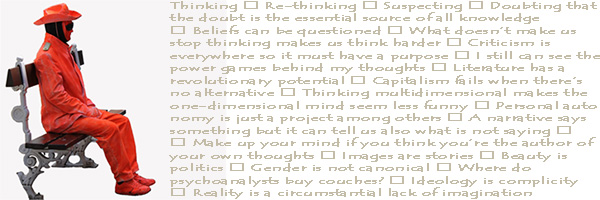
The Fourth Forum of Critical Studies: Asking Big Questions Again
13 – 14 November 2015
Palazzo Bernardini, Lucca, Tuscany, Italy
Keynote Speaker: James E. Block (DePaul University, Chicago, USA)
Conference Description:
Some say that the 21st Century or modernity altogether made humans more concerned with doing rather than being. As the classical Greek civilization valued most the reflexive thinking as a form of freedom from natural necessities, contemporary times profoundly involve individuals and the imaginary accompanying social practices in a restless logic of consumption, competition and engagement that profoundly – or some would say, radically – suspends or indefinitely postpones the autonomous capacity of human beings to question and reflect upon the social order and the meaning of social practices. The fast advancement of a peculiar logic of post-industrial societies, the gradual dissolution of alternative models to the capitalist logic and a multitude of other alerting factors pushed ahead a global spread culture of one-dimensional productions of meaning that advances a closure rather than a constant reflexive re-evaluation of cultural and social practices.
The Fourth Euroacademia Global Forum of Critical Studies aims to bring into an open floor the reflexive and questioning interaction among academics, intellectuals, practitioners and activists profoundly concerned with evaluative understandings of the world we’re living in. The focus of the forum is to initiate an arena where no question is misplaced and irrelevant as long as we acknowledge that evaluation, critical thinking and contestation are accessible trajectories to better understand our past, present and alternative scenarios for the future. The Forum is also an open stage for sharing existing or ready formed intellectual visions and expose them to dialogue and scrutiny in a critically reflective environment.
Conference Panels
Keynote Presentation: From Scarcity to Emancipation: Renewing the Promise of Post-Industrial Liberation
Politics of Visual Representation: From Artistic Collectives to Deconstructed Identities in Performing Arts
Urban Transformations: Personal Urbanities, Public Spaces and Historical Readings of Urban Image Construction
Performing Identity: Reflecting on Artist’s Constitution, Stewardship, and the Social Reception of Artistic Performance
Urban Transformations, Transition and Change in Urban Image Construction
The Sequential Art: Comics as a Cultural Nexus
Society, Politics and Economies: Critical Evaluations of Systems, Movements, Markets and Social Practices
Art History and Representations of Identity
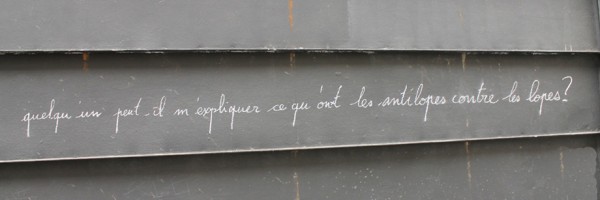
Identities and Identifications: Politicized Uses of Collective Identities (Third Edition)
19 – 20 June 2015
Palazzo Bernardini, Lucca, Italy
The Third Euroacademia International Conference ‘Identities and Identifications: Politicized Uses of Collective Identities’ aims to scrutinize the state of the art in collective identities research, to bring once more into debate the processes of identity making, identity building in both constructivist or de-constructivist dimensions. It is the aim of the Euroacademia conference to open the floor for dynamic multi-dimensional and inter-disciplinary understandings of identities in their historic formation or in the way they shape the present and future of organizations or communities.
Euroacademia aims to bring together a wide network of academics, researchers, practitioners and activists that are willing to share and open to debate their research on identity related topics. Disciplinary, trans and inter-disciplinary approaches, methodological assessments and recommendations, single case studies or cross-sectional analyses, reflective essays, experience sharing or works addressing new puzzles are all welcomed.
Conference Panels
Art and Identity Making: Self-Representation, Self–Projection and Life Practices
Cultural Belonging, Collective Identities and Politics of Representation through Difference
Identities and the Cities: Urban Transformations, Transition and Change in Urban Image Construction
History, Memory and Identity: Re-Invention of the Past through Artistic Narratives
Performing Identities in Writing: Literature and Textual Strategies of Identity Making
Identity and the Visual: The Role of Visual Representation in Shaping Identitarian Signifiers
Society, Politics and Identity Making Practices
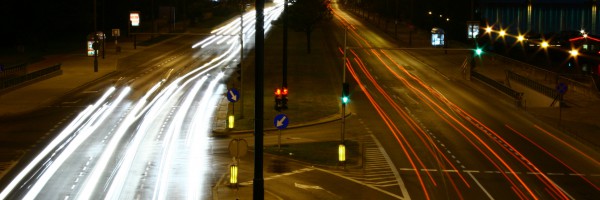
Re-Inventing Eastern Europe (The Fourth Edition)
24 – 26 April 2015
4* Metropolitan Hotel
Krakow, Poland
With a visit of Auschwitz – Birkenau on 26th of April
With a visit of Auschwitz – Birkenau on 26th of April
Eastern Europe was invented as a region and continues to be re-invented from outside and inside. From outside its invention was connected with alterity making processes, and, from inside the region, the Central and Eastern European countries got into a civilizational beauty contest themselves in search of drawing the most western profile: what’s Central Europe, what’s more Eastern, what’s more Ottoman, Balkan, Byzantine, who is the actual kidnapped kid of the West, who can build better credentials by pushing the Easterness to the next border. A wide variety of scholars addressed the western narratives of making the Eastern European ‘other’ as an outcome of cultural politics of enlightenment, as an effect of EU’s need to delineate its borders, as an outcome of its views on security, or as a type of ‘orientalism’ or post-colonialism. Most of these types of approaches are still useful in analyzing the persistence of a East-West slope. The region is understood now under a process of convergence, socialization and Europeanization that will have as outcomes an ‘ever closer union’ where the East and the West will fade away as categories. Yet the reality is far from such an outcome while the persistence of categories of alterity making towards the ‘East’ is not always dismantled. The discourses on core/non-core, new Europe/old Europe, pioneers/followers, teachers/pupils, centre/periphery, cosmos/chaos are often maintaining significant ground within the arena of European identity narratives often yet not exclusively voiced by the EU.
The Fourth Euroacademia International Conference ‘Re-Inventing Eastern Europe’ aims rather than asserting to make a case and to provide alternative views on the dynamics, persistence and manifestations of the practices of alterity making that take place in Europe and broadly in the mental mappings of the world. It offers an opportunity for scholars, activists and practitioners to locate, discuss and debate the multiple dimensions in which specific narratives of alterity making towards Eastern Europe preserve their salience today in re-furbished and re-fashioned manners. The conference aims to look at the processes of alterity making as puzzles and to address the persistence of the East-West dichotomies.
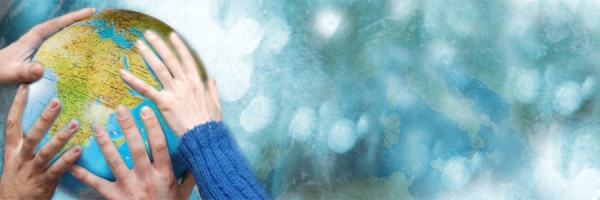
The 5th Euroacademia Conference ‘Europe Inside-Out: Europe and Europeanness Exposed to Plural Observers’
27 – 28 March 2015, Barcelona, Spain
What is Europe and its place in the world? Is there something particular that sedimented in time and through a controversial history a European way? How does Europe see itself and how do others see it? Is Europe inclusive or club-based exclusive? Is Europe becoming a normative power or just envisages itself as one? Is the European multiculturalism a fact or an ideal? Is the European Union a reflection of Europe or an appropriation of it? These are just few questions out of an enormous space for inquiry that are to be addressed and confronted within the topic of the conference.
The 5th Euroacademia Conference ‘Europe Inside-Out: Europe and Europeanness Exposed to Plural Observers’ became a regular event to take place in every year in a different European location. After four successful editions – the first one in Vienna, the second in Paris, the third in Prague and the fourth in Athens – Euroacademia moves the stage of reflection, sharing, dialogue, debate and research dissemination on Europe to one of its most amazing cities: Barcelona. Join us!
New Panels
Thinking Europe: Philosophy, Autonomy and Culture
Histories and Imaginaries: European Art versus American Art
Performing Identity: The Relationship between Identity and Performance in Literature, Theater and the Performing Arts
(En)Gendering Identity: Gender in Culture, Education and Society
Urban Transformations, Transition and Change in European Urban Image Construction

The Third Forum of Critical Studies: Asking Big Questions Again
6 – 7 February 2015
Villa Vittoria – Palazzo dei Congressi
Florence, Italy
Keynote Speaker: Mark Neufeld, Trent University, Canada
Conference Description:
Some say that the 21st Century or modernity altogether made humans more concerned with doing rather than being. As the classical Greek civilization valued most the reflexive thinking as a form of freedom from natural necessities, contemporary times profoundly involve individuals and the imaginary accompanying social practices in a restless logic of consumption, competition and engagement that profoundly – or some would say, radically – suspends or indefinitely postpones the autonomous capacity of human beings to question and reflect upon the social order and the meaning of social practices. The fast advancement of a peculiar logic of post-industrial societies, the gradual dissolution of alternative models to the capitalist logic and a multitude of other alerting factors pushed ahead a global spread culture of one-dimensional productions of meaning that advances a closure rather than a constant reflexive re-evaluation of cultural and social practices.
The Third Euroacademia Global Forum of Critical Studies aims to bring into an open floor the reflexive and questioning interaction among academics, intellectuals, practitioners and activists profoundly concerned with evaluative understandings of the world we’re living in. The focus of the forum is to initiate an arena where no question is misplaced and irrelevant as long as we acknowledge that evaluation, critical thinking and contestation are accessible trajectories to better understand our past, present and alternative scenarios for the future. The Forum is also an open stage for sharing existing or ready formed intellectual visions and expose them to dialogue and scrutiny in a critically reflective environment.
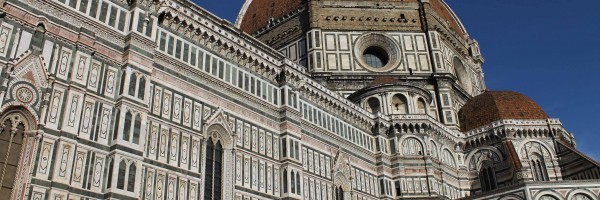
Identities and Identifications: Politicized Uses of Collective Identities
The Second Edition of the Euroacademia International Conference
Identities and Identifications
Politicized Uses of Collective Identities
17 – 18 October 2014
Florence, Italy
The Second Euroacademia International Conference ‘Identities and Identifications: Politicized Uses of Collective Identities’ aims to scrutinize the state of the art in collective identities research, to bring once more into debate the processes of identity making, identity building in both constructivist or de-constructivist dimensions. It is the aim of the Euroacademia conference to open the floor for dynamic multi-dimensional and inter-disciplinary understandings of identities in their historic formation or in the way they shape the present and future of organizations or communities.

The Third Euroacademia International Conference: The European Union and the Politicization of Europe
The Third Euroacademia International Conference
The European Union and the Politicization of Europe
26 – 27 September 2014
Lisbon, Portugal
5* Eurostars Hotel das Letras
Is the EU becoming an increasingly politicized entity? Is the on-going politicization of Europe a structured or a messy one? Do political parties within the European Parliament act in a manner that strengthens the view of the EU as an articulate political system? Are there efficient ways for addressing the democratic deficit issue? Can we find usable indicators for detecting an emerging European demos and a European civil society? Does a Europeanization of the masses take place or the EU remains a genuinely elitist project? Did the Lisbon Treaty introduced significant changes regarding the challenges facing the EU? Can we see any robust improvements in the accountability of the EU decision making processes? Are there alternative ways of looking at the politicization processes and redistributive policies inside the EU? These are only few of the large number of questions that unfold when researchers or practitioners look at the EU. It is the aim of the Third Euroacademia International Conference ‘The European Union and the Politicization of Europe’ to address in a constructive manner such questions and to offer o platform for dissemination of research results or puzzles that can contribute to a better understanding of the on-going process of politicization within the European Union.
Conference Panels
The Politicisation of Europe: EU as a Political System, Supranational Order or Ever Closer Community
The Persistence of the Democratic Deficit in the European Union
Assessing the European Union’s External Influence: Foreign Policy and Normative Actorness
Cultural Diplomacy and Performing Identities: From Literature to Visual Urban Spaces
European Union’s External Perception and Impact as a Transformative Power
Educational Policies of Europeanization, Mobility ad Internationalization
European Politics and Economic Development: Domestic and Regional Dimensions
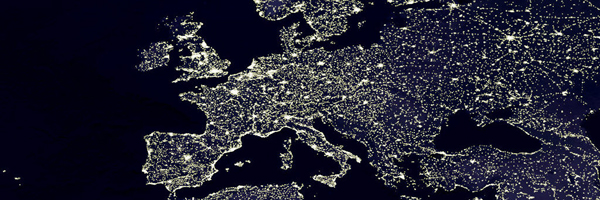
The 4th Euroacademia Global Conference ‘Europe Inside-Out: Europe and Europeaness Exposed to Plural Observers’
23-24 May 2014, Athens, Greece
5* Electra Palace Hotel
What is Europe and its place in the world? Is there something particular that sedimented in time and through a controversial history a European way? How does Europe see itself and how do others see it? Is Europe inclusive or club-based exclusive? Is Europe becoming a normative power or just envisages itself as one? Is the European multiculturalism a fact or an ideal? Is the European Union a reflection of Europe or an appropriation of it? These are just few questions out of an enormous space for inquiry that are to be addressed and confronted within the topic of the conference.
The 4th Euroacademia Conference ‘Europe Inside-Out: Europe and Europeaness Exposed to Plural Observers’ became a regular event to take place in every year in a different European location. After three successful editions – the first one in Vienna, the second in Paris and the third in Prague – Euroacademia moves the stage of reflection, sharing, dialogue, debate and research dissemination on Europe to its origins where the specificity of European thinking and world vision has emerged: in Athens. Join us!
New Panels
Art as Cultural Diplomacy
Thinking Europe: Philosophy, Autonomy and Culture
The European Way – Identitarian Representations of Europe in Visual Arts, Performing Arts and Literature
Europe and the European Union: Politicizing Europeaness
Histories and Imaginaries: European Art versus American Art

Re-Inventing Eastern Europe (The Third Edition)
The Third International Conference
Re-Inventing Eastern Europe
28 – 29 March 2014
Berlin, Germany
The Third Euroacademia International Conference ‘Re-Inventing Eastern Europe’ aims rather than asserting to make a case and to provide alternative views on the dynamics, persistence and manifestations of the practices of alterity making that take place in Europe and broadly in the mental mappings of the world. It offers an opportunity for scholars, activists and practitioners to locate, discuss and debate the multiple dimensions in which specific narratives of alterity making towards Eastern Europe preserve their salience today in re-furbished and re-fashioned manners. The conference aims to look at the processes of alterity making as puzzles and to address the persistence of the East-West dichotomies.
Conference Panels
Art as Cultural Diplomacy: (Re)Constructing Notions of Eastern and Western Europe
Central East European Economies: Trade, Development and Structural Change in the Region
Visual Urban Transformations: Transition and Change in Urban Image Construction
The Readings of the Past: On Memory and Memorialization
Art as Cultural Diplomacy: Identities and Representations of Eastern Europe in Literature and Film
Eastern Europe and the EU: Assessing Normative Claims – Security, Perceptions and the Process of Integration
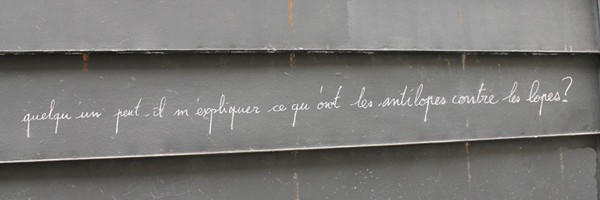
The Second Global Forum of Critical Studies
Asking Big Questions Again
21-22 February 2014, Prague, Czech Republic
Grand Majestic Plaza Hotel
The Second Euroacademia Global Forum of Critical Studies aims to bring into an open floor the reflexive and questioning interaction among academics, intellectuals, practitioners and activists profoundly concerned with evaluative understandings of the world we’re living in.
The focus of the forum is to initiate an arena where no question is misplaced and irrelevant as long as we acknowledge that evaluation, critical thinking and contestation are accessible trajectories to better understand our past, present and alternative scenarios for the future.
The ‘fatal strategies’ of post-industrial societies to keep individuals captive, busy and seduced by contingent social arrangements and economic practices minimized the questioning detachment required to evaluate and give meaning through reflexive criticism and unlimited interrogation. Various labels were given to our unfolding times from apocalyptic ones to some more comforting yet not by chance lacking some vital optimism. Despite a wide-spread discontent and suspicion towards the daily realities of our current societies, most of the big questions are often left outside by the self-involved active pursuit of an imagined well-being that is no longer transgressed by harsh critical evaluation of its meaning.
New Panels
Performing Identity: The Relationship between Identity and Performance in Literature, Theatre and the Performing Arts
(En)Gendering Identity: Gender in Culture, Education and Society
Theory and Praxis: Bridging the Gap in Critical Theory
Marxism Reloaded or Philosophy in Times of Poverty


